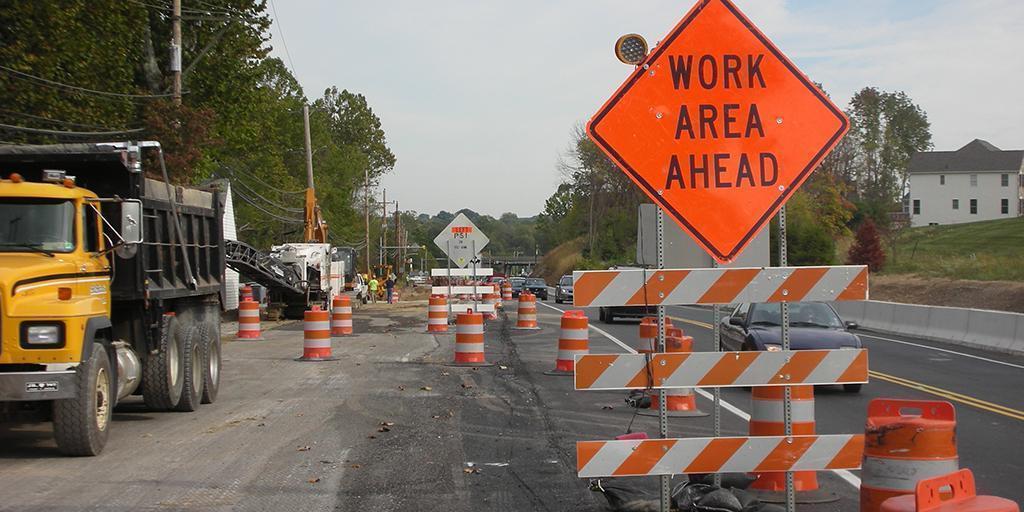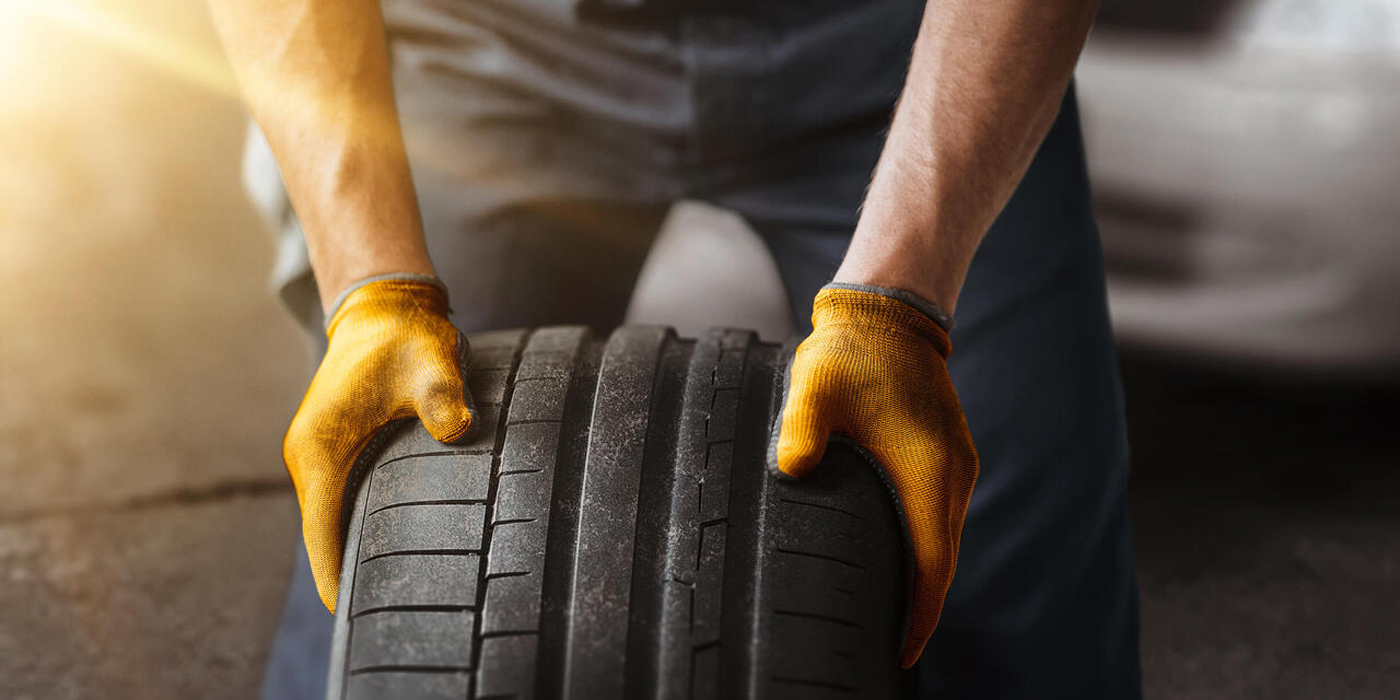Ready for the Warm Weather!
As winter fades away and spring approaches, it's time to shift gears and prepare for the changes that accompany the warmer weather. With longer days and brighter skies on the horizon, drivers must remain vigilant and mindful of safe driving practices, especially in construction zones. The upcoming National Work Zone Awareness Week—a vital initiative highlighting the importance of safety in highway work areas—reminds us that as the construction season kicks off, so do the potential challenges on our roads. In this blog, we'll explore essential tips for navigating work zones safely, the significance of proper tire maintenance, and the importance of staying informed about seasonal road restrictions. Let’s ensure that this spring is not only beautiful but safe for everyone on the road!
In this issue:
- 2025 National Work Zone Awareness Week is April 21-25.
- Frost Laws in states and 9 Provinces.
- International Road-check 2025 is May 13-15.
- Registration is now open online for the 2025 Idealease/NPTC Spring Safety Seminar!
Read, share, and/or print this week's Safety Bulletin.
Check out past Idealease Safety Bulletins.
The first day of spring is just around the corner, falling on Thursday, March 20! Now is a great time to gather your drivers and discuss the upcoming changes as temperatures rise and we enjoy more sunny days. This winter felt incredibly long for many, so it’s important to remind drivers to stay alert and avoid complacency. Once conditions improve and the sun starts shining, drivers tend to let their guard down, leading to accidents.
Remind drivers about the importance of maintaining good defensive driving habits during this transition.
2025 National Work Zone Awareness Week is April 21-25
National Work Zone Awareness Week (NWZAW) is an annual spring initiative that marks the beginning of the construction season. Its primary goal is to encourage safe driving practices in highway work zones and construction areas. The main takeaway is for drivers to be particularly vigilant in these zones.
For additional details, please refer to: National Work Zone Awareness Week 2025
10 Tips for Driving Safely in Work Zones:
- EXPECT THE UNEXPECTED! Speed limits may be lower than usual, traffic lanes could shift, and construction workers may be on or near the roadway.
- SLOW DOWN! Speeding is one of the leading causes of work zone crashes.
- DON’T TAILGATE! KEEP A SAFE DISTANCE FROM THE VEHICLE AHEAD. Rear-end collisions are the most frequent type of accident in highway work zones. Make sure to keep a safe distance and avoid tailgating.
- MAINTAIN A SAFE DISTANCE FROM WORKERS AND CONSTRUCTION EQUIPMENT.

- PAY ATTENTION TO THE SIGNS! Caution signs are essential for guiding drivers safely through construction areas. Adhere to the displayed signs until you find one that indicates you have left the work zone.
- OBEY ROAD CREW FLAGGERS! Flaggers possess the same level of authority as regulatory signs, and disregarding their instructions may lead to a citation.
- STAY ALERT AND MINIMIZE DISTRACTIONS! Stay focused on the road and refrain from using your cell phone or adjusting the radio when driving through a work zone.
- KEEP UP WITH THE TRAFFIC FLOW. Blend into the traffic flow promptly and steer clear of sudden lane shifts near closures.
- SCHEDULE ENOUGH TIME TO DRIVE SAFELY AND CHECK TRAFFIC INFORMATION. Anticipate delays and leave early to arrive on time. Check the National Work Zone Safety Information Clearinghouse for nationwide work zone updates.
- BE PATIENT AND STAY CALM. Work zones exist to enhance roadways, ensuring that future journeys are safer and more efficient.
Question of the Week
Q: While doing my pre-trip inspection, I noticed a cut in the sidewall of one of my tires. Is this an out-of-service violation?
A: Yes, it is an out-of-service violation if the sidewall is cut, worn, or damaged to the extent that the ply cord is exposed. (FMCSA Regulation 393.75(a))
Tire safety is integral to the driver’s daily pre and post-inspection.
Tires that are not inflated correctly frequently cause accidents. Given that fuel and tires represent two of the most significant costs in truck operations, it’s vital to maintain proper tire inflation.
Improper inflation not only decreases a tire’s lifespan but also leads to lower fuel efficiency when tires are underinflated. The best way to check a tire’s air pressure is by using a tire pressure gauge.
At your next driver safety meeting, consider conducting an interactive demonstration: Inflate three tires on rims at different pressures—one at the correct level, one 10 PSI psi below, and another 20 PSI psi below. Challenge your drivers to identify which tire is inflated properly.
I once reviewed a unique workers’ compensation case involving a driver who checked his tire pressure by striking the tires with a hammer. The hammer bounced back and injured his jaw! This incident underscores the necessity of using appropriate tools and techniques when inspecting tires.
When examining tires, pay attention to wear patterns and tread depth. FMCSA regulations (CFR 393.75) stipulate:
- Steer axle tires to have a minimum tread depth of 4/32”
- All other tires, including trailer tires, to have a minimum tread depth of 2/32”
Proper tire maintenance will extend service life and improve overall safety.
Frost Laws in 16 states and 9 Provinces!
Spring weather can present various driving challenges. The fluctuations in ground temperature may lead to road damage and bumpy roads. As a result, motor carriers must stay informed about the seasonal weight restrictions imposed by states and provinces to avoid damaging both the roadways and their trucks.
Be ready for an alternate route.
To safeguard the condition of roadways, many states implement seasonal weight limits starting as early as late February and continuing into May in some areas. As drivers travel through regions affected by spring thaws, it’s crucial to notice posted signs that indicate allowable weight limits, which may also include reduced speed limits.
When planning a trip, you should check state websites for information on whether specific highways can accommodate your vehicles. If a driver encounters a weight limit, they will need to find an alternative route and may need to reach out to dispatch for help. Neglecting these posted restrictions can lead to more serious consequences than just fines, including potential damage to roads, vehicles, and cargo and the risk of accidents on challenging roadways.
For detailed information about laws in various states and provinces, please visit: https://oversize.io/regulations/frost-laws-by-state
International Roadcheck 2025 May 13-15
International Roadcheck is an annual three-day event where CVSA-certified inspectors focus on safety compliance for commercial motor vehicles. It is the world’s most extensive targeted enforcement program, inspecting nearly 15 trucks and motorcoaches every minute across North America during the 72 hours. Since 1988, over 1.8 million roadside inspections have taken place. This initiative also educates the industry and the public about safe commercial vehicle operations. CVSA sponsors it with various safety and transportation authorities from the U.S., Canada, and Mexico.
Registration is now open online for the 2025 Idealease/NPTC Spring Safety Seminars!
Idealease and the National Private Truck Council NPTC will again be hosting safety seminars in the spring and fall of 2025. The one-day seminar this year will focus on basic safety and compliance, regulation changes and CSA. The seminars and will be provided to all Idealease customers, potential customers and NPTC members at no charge. The seminar provides important information applicable for both the novice and experienced transportation professionals.
Spring Seminars 2025
- 4/16/2025 – Dallas, TX
- 4/21/2025 – Hudsonville, MI
- 4/23/2025 – Brookfield, WI
- 4/29/2025 – San Leandro, CA
- 5/1/2025 – Portland, OR
- TBD – Harrisburg, PA
- TBD – Columbia, SC
- TBD – Miami, FL
- 5/15/2025 – Tampa, FL
To register for an upcoming spring seminar in 2025, click on the following link:
Safety Seminar Registration
Note: Fall seminars will be announced in a later bulletin.
*The Idealease Safety Bulletin is provided for Idealease locations and their customers and is not to be construed as a complete or exhaustive source of compliance or safety information. The Idealease Safety Bulletin is advisory in nature and does not warrant, guarantee, or otherwise certify compliance with laws, regulations, requirements, or guidelines of any local, state, or Federal agency and/or governing body, or industry standards.
